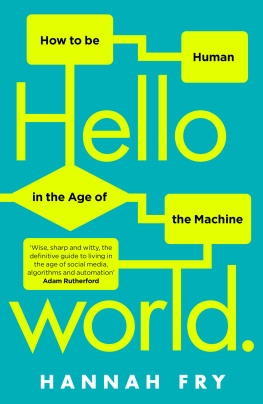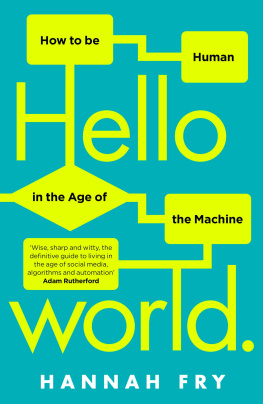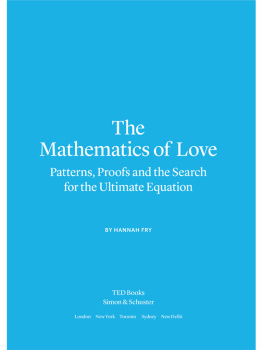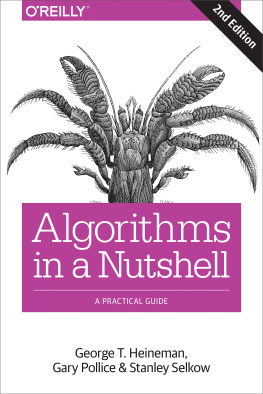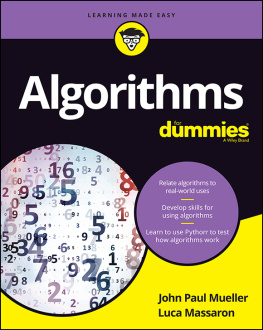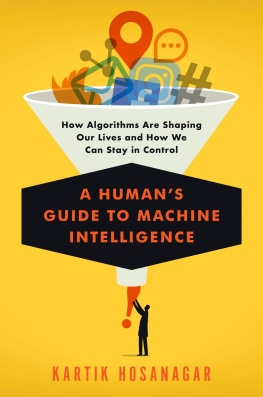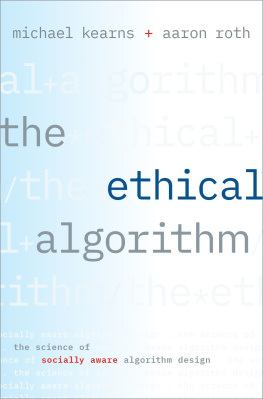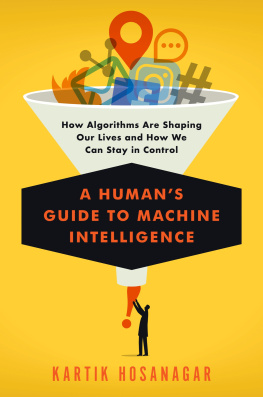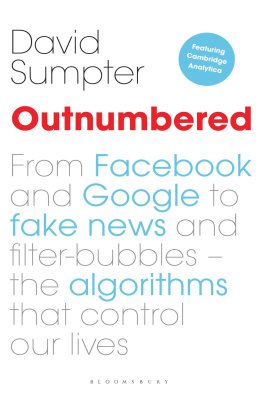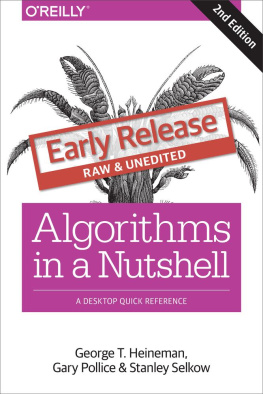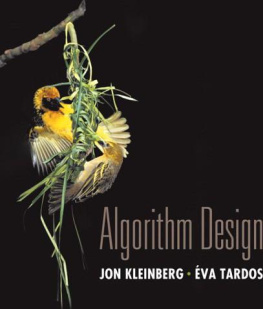About the Book
Would you let your familys full medical history be made public if it would help find a cure for cancer?
You are accused of a crime. Who do you want to decide your future a human or a machine?
Which driverless car would you buy one that prioritizes your life in the event of a crash, or one that reacts to save as many lives as possible?
Welcome to the age of the machine, the story of a not-too-distant future where algorithms rule supreme, making decisions about our healthcare, security, what we watch, where we go, even who goes to prison. So how much should we rely on them? What kind of future do we want?
Hannah Fry takes us on a tour of the good, the bad and the downright ugly of the algorithms that surround us. In Hello World she lifts the lid on their inner workings, demonstrates their power, exposes their limitations, and examines whether they really are an improvement on the humans they are replacing.
Contents
For Marie Fry.
Thank you for never taking no for an answer.
A note on the title
WHEN I WAS 7 years old, my dad brought a gift home for me and my sisters. It was a ZX Spectrum, a little 8-bit computer the first time wed ever had one of our own. It was probably already five years out of date by the time it arrived in our house, but even though it was second-hand, I instantly thought there was something marvellous about that dinky machine. The Spectrum was roughly equivalent to a Commodore 64 (although only the really posh kids in the neighbourhood had one of those) but I always thought it was a far more beautiful beast. The sleek black plastic casing could fit in your hands, and there was something rather friendly about the grey rubber keys and rainbow stripe running diagonally across one corner.
For me, the arrival of that ZX Spectrum marked the beginning of a memorable summer spent up in the loft with my elder sister, programming hangman puzzles for each other, or drawing simple shapes through code. All that advanced stuff came later, though. First we had to master the basics.
Looking back, I dont exactly remember the moment I wrote my first ever computer program, but Im pretty sure I know what it was. It would have been the same simple program that Ive gone on to teach all of my students at University College London; the same as youll find on the first page of practically any introductory computer science textbook. Because there is a tradition among all those who have ever learned to code a rite of passage, almost. Your first task as a rookie is to program the computer to flash up a famous phrase on to the screen:
HELLO WORLD
Its a tradition that dates back to the 1970s, when Brian Kernighan included it as a tutorial in his phenomenally popular programming textbook. The book and hence the phrase marked an important point in the history of computers. The microprocessor had just arrived on the scene, heralding the transition of computers from what they had been in the past enormous great specialist machines, fed on punch cards and ticker-tape to something more like the personal computers were used to, with a screen, a keyboard and a blinking cursor. Hello world came along at the first moment when chit-chat with your computer was a possibility.
Years later, Brian Kernighan told a Forbes interviewer about his inspiration for the phrase. Hed seen a cartoon showing an egg and a newly hatched chick chirping the words Hello world! as it was born, and it had stuck in his mind.
Its not entirely clear who the chick is supposed to be in that scenario: the fresh-faced human triumphantly announcing their brave arrival to the world of programming? Or the computer itself, awakening from the mundane slumber of spreadsheets and text documents, ready to connect its mind to the real world and do its new masters bidding? Maybe both. But its certainly a phrase that unites all programmers, and connects them to every machine thats ever been programmed.
Theres something else I like about the phrase something that has never been more relevant or more important than it is now. As computer algorithms increasingly control and decide our future, Hello world is a reminder of a moment of dialogue between human and machine. Of an instant where the boundary between controller and controlled is virtually imperceptible. It marks the start of a partnership a shared journey of possibilities, where one cannot exist without the other.
In the age of the machine, thats a sentiment worth bearing in mind.
Introduction
ANYONE WHO HAS ever visited Jones Beach on Long Island, New York, will have driven under a series of bridges on their way to the ocean. These bridges, primarily built to filter people on and off the highway, have an unusual feature. As they gently arc over the traffic, they hang extraordinarily low, sometimes leaving as little as 9 feet of clearance from the tarmac.
Theres a reason for this strange design. In the 1920s, Robert Moses, a powerful New York urban planner, was keen to keep his newly finished, award-winning state park at Jones Beach the preserve of white and wealthy Americans. Knowing that his preferred clientele would travel to the beach in their private cars, while people from poor black neighbourhoods would get there by bus, he deliberately tried to limit access by building hundreds of low-lying bridges along the highway. Too low for the 12-foot buses to pass under.
Racist bridges arent the only inanimate objects that have had a quiet, clandestine control over people. History is littered with examples of objects and inventions with a power beyond their professed purpose. Sometimes its deliberately and maliciously factored into their design, but at other times its a result of thoughtless omissions: just think of the lack of wheelchair access in some urban areas. Sometimes its an unintended consequence, like the mechanized weaving machines of the nineteenth century. They were designed to make it easier to create complicated textiles, but in the end, the impact they had on wages, unemployment and working conditions made them arguably more tyrannical than any Victorian capitalist.
Modern inventions are no different. Just ask the residents of Scunthorpe in the north of England, who were blocked from opening AOL accounts after the internet giant created a new profanity filter that objected to the name of their town.
Behind each of these inventions is an algorithm. The invisible pieces of code that form the gears and cogs of the modern machine age, algorithms have given the world everything from social media feeds to search engines, satellite navigation to music recommendation systems, and are as much a part of our modern infrastructure as bridges, buildings and factories ever were. Theyre inside our hospitals, our courtrooms and our cars. Theyre used by police forces, supermarkets and film studios. They have learned our likes and dislikes; they tell us what to watch, what to read and who to date. And all the while, they have the hidden power to slowly and subtly change the rules about what it means to be human.
In this book, well discover the vast array of algorithms on which we increasingly, but perhaps unknowingly, rely. Well pay close attention to their claims, examine their undeclared power and confront the unanswered questions they raise. Well encounter algorithms used by police to decide who should be arrested, which make us choose between protecting the victims of crime and the innocence of the accused. Well meet algorithms used by judges to decide on the sentences of convicted criminals, which ask us to decide what our justice system should look like. Well find algorithms used by doctors to over-rule their own diagnoses; algorithms within driverless cars that insist we define our morality; algorithms that are weighing in on our expressions of emotion; and algorithms with the power to undermine our democracies.

